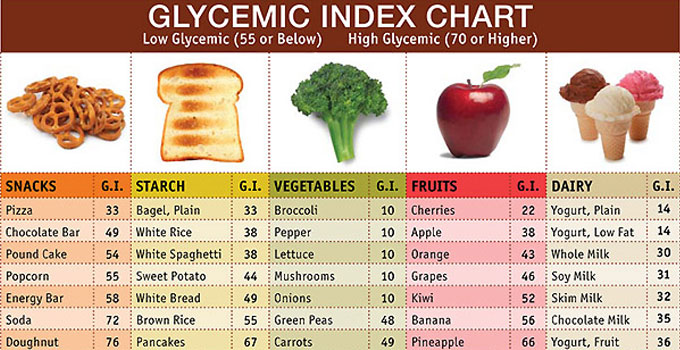world psoriasis day


Role of Glycemic index in day to day life

Have you ever thought of why some foods can be eaten in good quantities without worrying about the sugar rise or weight increase while in some others portion control is important? Glycemic index is the concept that helps us to choose food wisely. Are you wondering what is glycemic index and how does it help?
Glycemic index or GI is a measure of the effects of carbohydrates on blood glucose levels. Carbohydrates that break down during digestion releasing glucose rapidly into the blood stream have a high GI; carbohydrates that break down slowly, releasing glucose gradually into the bloodstream, have a low GI.
A lower glycemic index suggests slower rates of digestion and absorption of the foods’. Carbohydrates may also indicate greater extraction from the liver and periphery of the products of carbohydrate digestion. A lower glycemic response is often thought to equate to a lower insulin demand, better long-term blood glucose control and a reduction in blood lipids.
Benefits of the Glycemic Index
Eating a lot of high GI foods can be harmful to your health as it pushes your body to extremes. This is especially true if you are overweight and sedentary. Switching to eating mainly low GI carbohydrates that slowly trickle glucose into your blood stream keeps your energy levels balanced and will feel fuller for longer between meals.
Comments
Post a Comment